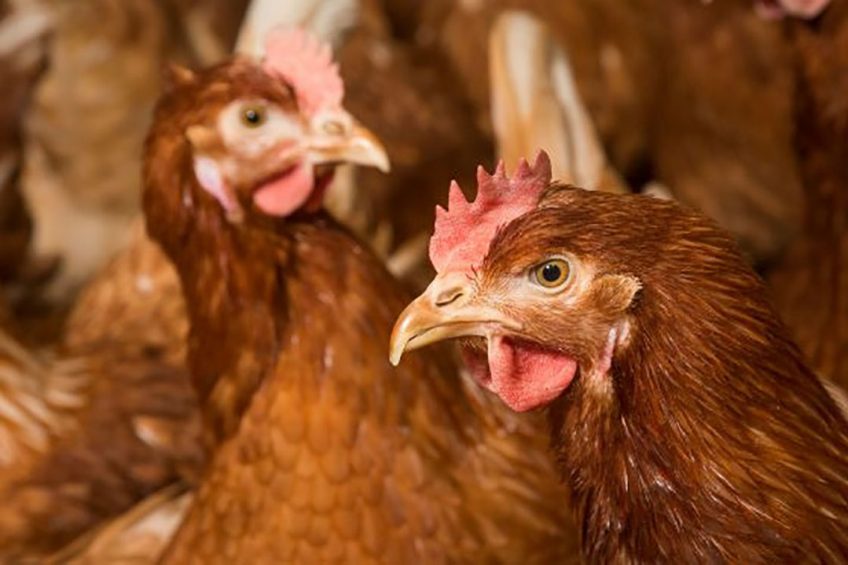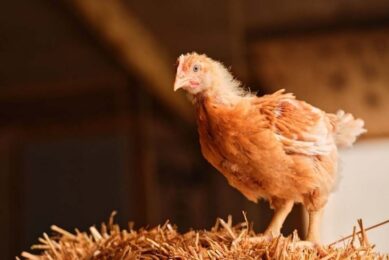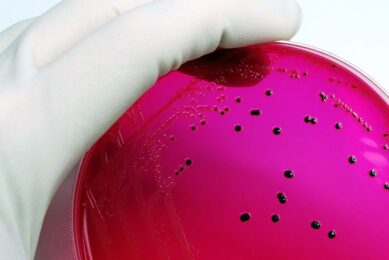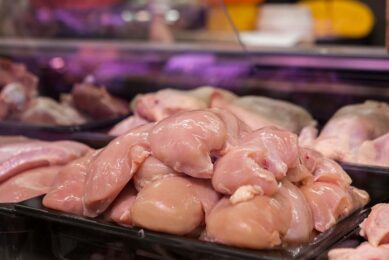UK leading the way in animal welfare

Retailers and producer groups are leading the way in driving forward positive animal welfare changes, according to the findings of the latest Business Benchmark on Farm Animal Welfare (BBFAW) report.
Tracey Jones, Compassion in World Farming Director of Food Business, highlighted Sainsbury’s Sustainable Dairy Group, which in the past ten years has reduced dairy cow lameness from 25% to 7%, helping the physical and mental well-being of stock.
Addressing investors and stakeholders at the launch of the 7th annual report in London, Dr Jones also highlighted the growing use of technology in the livestock industry to alleviate welfare concerns.
“The use of optic flow patterns enables us to see movement patterns in broilers with regard to future cases of footpad dermatitis. We can now predict at day 14 which birds are going to have walking difficulties later in the cycle,” she said.
“Similarly, vocalisation techniques – looking at coughing in pigs – can highlight future issues of lung disease in pigs.”
Annual survey results
Results from the annual survey – this year covering 150 global companies – found that while many had now adopted farm animal welfare policies and implemented farm animal management systems, the majority provided only limited or no information on farm animal welfare performance. The overall score for companies fell from 37% last year to 32%, partly due to the influx of 43 companies mainly from the Far East and Latin America which had lower welfare standards.
Nicky Amos, BBFAW executive director, said more needed to be done in this area: “While just over half of companies report on the proportion of animals that are free from close confinement, only one in four companies covered by the Benchmark provides any information on the proportion of animals that are stunned and only one in five companies reports on live animal transport times.
Dr Rory Sullivan, BBFAW expert adviser, said investors needed to have confidence that companies are delivering the outcomes that they aspire to.
Helen Vines Fiestas, deputy global head of sustainability at BNP Paribas Asset Management, said regulations in Europe were playing a key part in driving higher welfare standards, adding that it was now time for more pressure to be placed on North American legislators.
The report demonstrated that UK companies achieved a significantly higher average score (61%) compared to other regions, such as North America (28%) and Europe (excluding the UK) (34%).
Cranswick, Noble Foods, Marks and Spencer, Waitrose and Co-op Group (Switzerland) were confirmed in the report as global leaders on farm animal welfare. Of the 150 companies assessed, 63 were in the Producers and Manufacturers sector, including the top 40 global producers and top 10 poultry producers with annual revenues of over US$4.6bn.
Two factors contributed to Noble Foods reaching its top tier one position. The company has improved its performance measurement and welfare improvements for laying hens and dairy cows. And, its position on the responsible use of antimicrobial medicines was also praised. The company requires its farmers’ medicine records to provide an annual record of the amount of antibiotics used, and for each farmers’ use of antibiotics to be reviewed annually by a vet.
Kraft Heinz’s promotion to tier three from tier five was also noted. This progress is largely attributed to the company publishing updated animal welfare policies, and more detailed reporting on the company’s management control and improvement targets. Globally, Kraft Heinz is switching to using only cage-free eggs across all of its operations by 2025 and in Europe, its goal is to achieve 100% free range by 2020.
The company has also committed to source all its pork globally from suppliers that do not use sow stalls. The company also supports industry initiative that will eliminate cow tail docking in its milk supply chain, and is committed to improving the welfare of broiler chickens by working with its suppliers and the industry to meet even higher welfare standards by 2024.
Other leading poultry companies involved in BBFAW included Perdue Farms and Cargill (Tier 2 Welfare Integral to Business Strategy), 2 Sisters Food Group, McDonalds, Tyson Foods and Yum Brands (KFC) (Tier 3 – Established but work to be done), Charoen Pokphand Foods (Tier 4 – Making Progress on implementation) , Chick Fil-A, Sanderson Farms (Tier 5 – On the business agenda but limited evidence of implementation) and Guangdong Wens Foodstuff Group (Tier 6 – no evidence business on the welfare agenda).
Join 31,000+ subscribers
Subscribe to our newsletter to stay updated about all the need-to-know content in the poultry sector, three times a week. Beheer
Beheer








 WP Admin
WP Admin  Bewerk bericht
Bewerk bericht